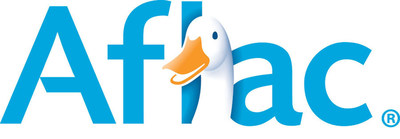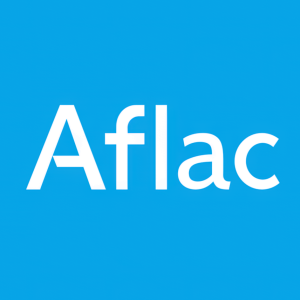Men press snooze on their health care, new survey finds
More than half of men go to the doctor only when they feel sick or have an accident
COLUMBUS, Ga., June 21, 2022 /PRNewswire/ -- Men aren't paying enough attention to their personal health care and they're particularly tight lipped when it comes to mental health, according to the newly released Aflac Men's Health Survey. The study of 1,000 U.S. men reveals fewer than half,
"The last two years have been incredibly challenging, and many people delayed doctor's visits and procedures due to the pandemic. Unfortunately, even now as pandemic conditions have eased, this study shows that many men are still avoiding health care and need a wake-up call about their health priorities," said Aflac Senior Vice President of Distribution Expansion and Consumer Markets Jeramy Tipton. "Many men press snooze on important opportunities to proactively screen for and avert illnesses, which could help prevent more serious and costly health issues in the future."
According to respondents, the majority of men are experiencing mental or behavioral health concerns, yet many sidestep conversations about these important health issues. Anxiety, trouble sleeping and depression were most commonly reported in the study, and
Generation gap
A full
Concern about costs
Men from the study who said they worry about finances were more likely to experience a behavioral or mental health concern,
"Even with health insurance, there are out-of-pocket costs that many people aren't able to pay," explained Tipton. "Aflac is meeting today's rapidly changing benefit needs with flexible coverage that helps take care of expenses health insurance doesn't cover. Insured individuals can use their benefits to help with medical co-pays, deductibles and prescriptions or everyday living expenses like rent, utilities or child care. We make wellness benefits, telemedicine and more available as value-added services to encourage individuals to take advantage of annual checkups."
Procrastination sounds better than discussing final expenses like funeral costs
Final expense planning was also a touchy issue for many men, according to the study. Most of the men surveyed, between
Access to health care
Access to quality health care is also a concern. Millennials were more likely to state they believe this is often determined by one's race,
Men want help, but require more motivation
Men expressed strong interest in tools or additional benefits coverage to support their mental health and wellness:
"While it may be something they'd rather delay, having these very important mental health and financial planning conversations could make a world of difference for improved well-being, productivity and financial security for men and their families. Taking a look at your benefits and supplemental insurance that includes mental health care and financial planning resources is a really good first step," Tipton said.
About the study
The Men's Health Study was conducted online in May 2022 by Kantar Profiles on behalf of Aflac and included a nationally representative sample of 1,001 men ages 18-65. Definitions of the age generations used in the survey: Gen Z — 18 to 24 years; millennials — 25 to 40 years; Gen X — 41 to 56 years; baby boomers — 57 to 65 years.
For more information about this survey please visit: aflac.com/menshealth.
ABOUT AFLAC INCORPORATED
Aflac Incorporated (NYSE: AFL) is a Fortune 500 company helping provide protection to more than 50 million people through its subsidiaries in Japan and the U.S., paying cash fast when policyholders get sick or injured. For more than six decades, insurance policies of Aflac Incorporated's subsidiaries have given policyholders the opportunity to focus on recovery, not financial stress. In the U.S., Aflac is the number one provider supplemental health insurance products1. Aflac Life Insurance Japan is the leading provider of medical and cancer insurance in Japan, where it insures 1 in 4 households. In 2021, Aflac Incorporated was proud to be included as one of the World's Most Ethical Companies by Ethisphere for the 16th consecutive year. Also in 2021, the company was included in the Dow Jones Sustainability North America Index and became a signatory of the Principles for Responsible Investment (PRI). In 2022, Aflac Incorporated was included on Fortune's list of World's Most Admired Companies for the 21st time and Bloomberg's Gender-Equality Index for the third consecutive year. To find out how to get help with expenses health insurance doesn't cover, get to know us at aflac.com or aflac.com/español. Investors may learn more about Aflac Incorporated and its commitment to ESG and social responsibility at investors.aflac.com under "Sustainability."
1 LIMRA 2021 US Supplemental Health Insurance Total Market Report
Media contact: Jon Sullivan, 706-763-4813 or jsullivan@aflac.com
Analyst and investor contact: David A. Young, 706-596-3264, 800-235-2667 or dyoung@aflac.com
![]() View original content to download multimedia:https://www.prnewswire.com/news-releases/men-press-snooze-on-their-health-care-new-survey-finds-301571873.html
View original content to download multimedia:https://www.prnewswire.com/news-releases/men-press-snooze-on-their-health-care-new-survey-finds-301571873.html
SOURCE Aflac Incorporated








